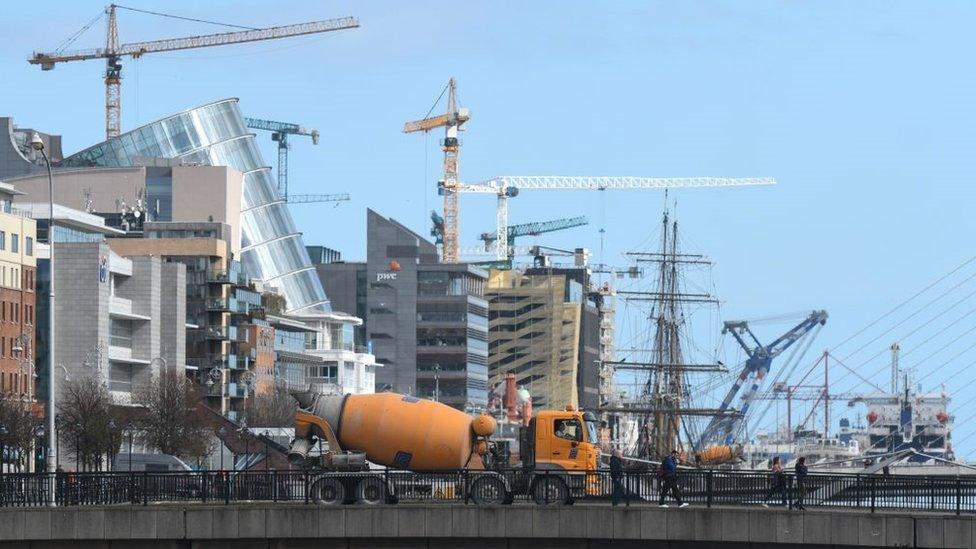Irish economy grew by 3% last year, FDD suggests
- Published

A photo of cranes and construction sites on Dublin's North Quay, taken in March 2019
Ireland's domestic economy grew by 3% in 2019, official figures suggest.
The economic performance was assessed using the final domestic demand (FDD) measure - a way of stripping out some of the effects of multinational firms.
Ireland's national accounts tend to be distorted by the activities of global companies which use Dublin as a centre for financing and taxation operations.
FDD includes personal and government consumption and investment but excludes things like aircraft leasing.
Gross domestic product (GDP), an increasingly unreliable way of assessing the Irish economy, grew by 5.5%.
Minister for Finance Paschal Donohoe said it was clear the domestic economy is "growing at a robust rate".
"These figures are very much in line with a range of other indicators such as employment growth and taxation receipts," he added.
"For instance, the level of employment increased by 2.9% last year, the seventh straight year of employment growth of that rate or higher."
However, Mr Donohoe cautioned that Ireland was now entering "a precarious trading environment as a result of the spread of coronavirus".
- Published24 January 2021
- Published27 August 2019
- Published11 July 2019